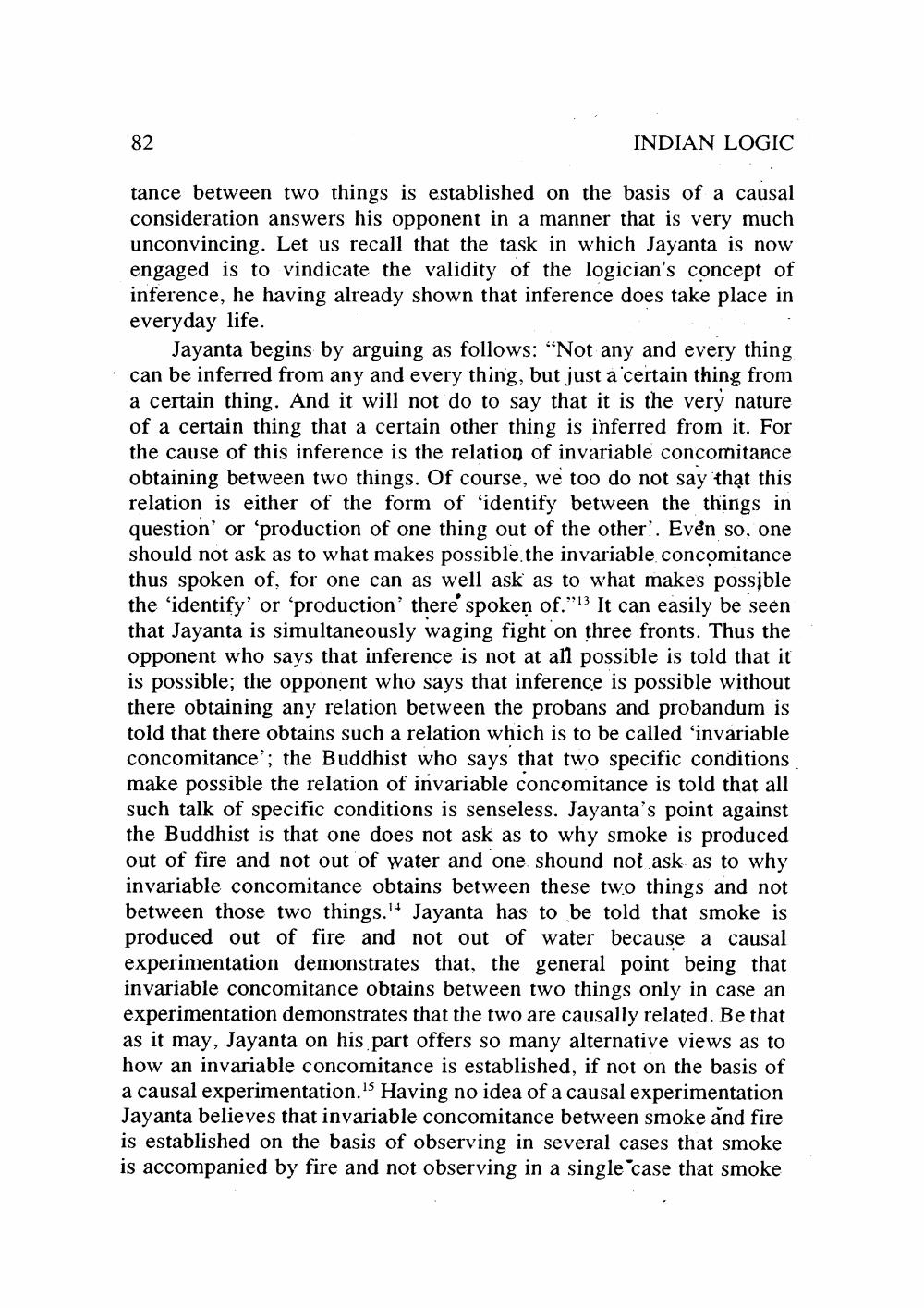________________
82
INDIAN LOGIC
tance between two things is established on the basis of a causal consideration answers his opponent in a manner that is very much unconvincing. Let us recall that the task in which Jayanta is now engaged is to vindicate the validity of the logician's concept of inference, he having already shown that inference does take place in everyday life.
Jayanta begins by arguing as follows: "Not any and every thing can be inferred from any and every thing, but just a certain thing from a certain thing. And it will not do to say that it is the very nature of a certain thing that a certain other thing is inferred from it. For the cause of this inference is the relation of invariable concomitance obtaining between two things. Of course, we too do not say that this relation is either of the form of 'identify between the things in questionor 'production of one thing out of the other. Even so, one should not ask as to what makes possible the invariable concomitance thus spoken of, for one can as well ask as to what makes possible the 'identify' or 'production there spoken of."13 It can easily be seen that Jayanta is simultaneously waging fight on three fronts. Thus the opponent who says that inference is not at all possible is told that it is possible; the opponent who says that inference is possible without there obtaining any relation between the probans and probandum is told that there obtains such a relation which is to be called 'invariable concomitance"; the Buddhist who says that two specific conditions make possible the relation of invariable concomitance is told that all such talk of specific conditions is senseless. Jayanta's point against the Buddhist is that one does not ask as to why smoke is produced out of fire and not out of water and one shound not ask as to why invariable concomitance obtains between these two things and not between those two things.Jayanta has to be told that smoke is produced out of fire and not out of water because a causal experimentation demonstrates that, the general point being that invariable concomitance obtains between two things only in case an experimentation demonstrates that the two are causally related. Be that as it may, Jayanta on his part offers so many alternative views as to how an invariable concomitance is established, if not on the basis of a causal experimentation. Having no idea of a causal experimentation Jayanta believes that invariable concomitance between smoke and fire is established on the basis of observing in several cases that smoke is accompanied by fire and not observing in a single case that smoke




